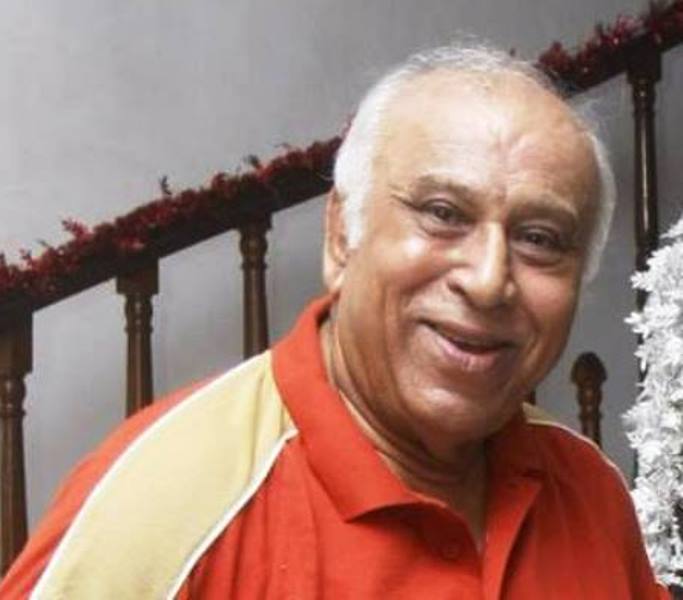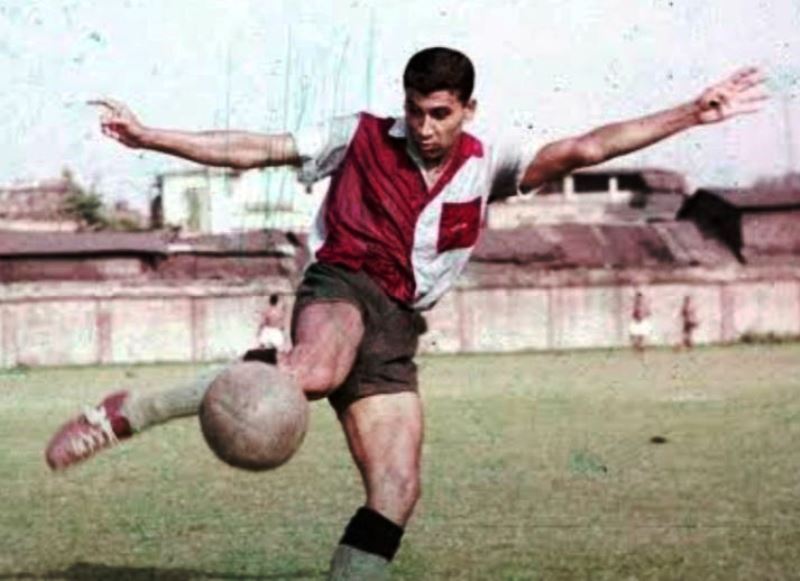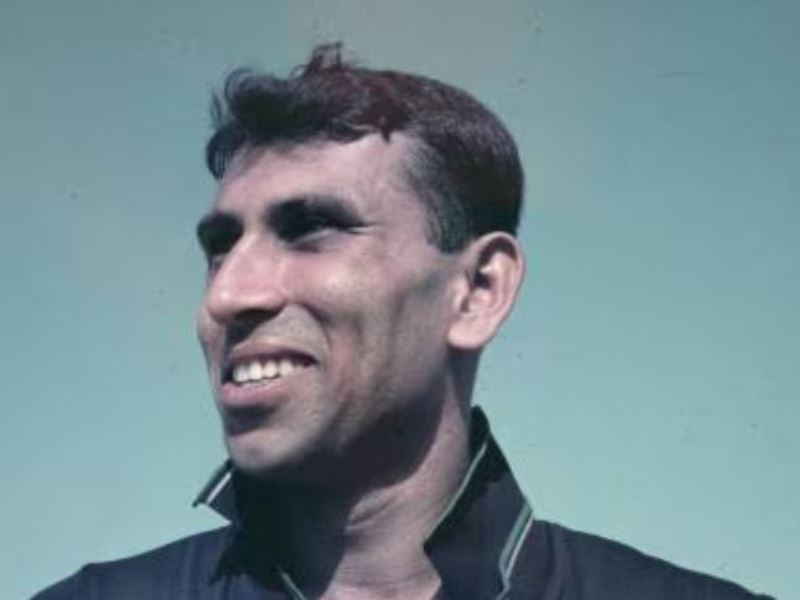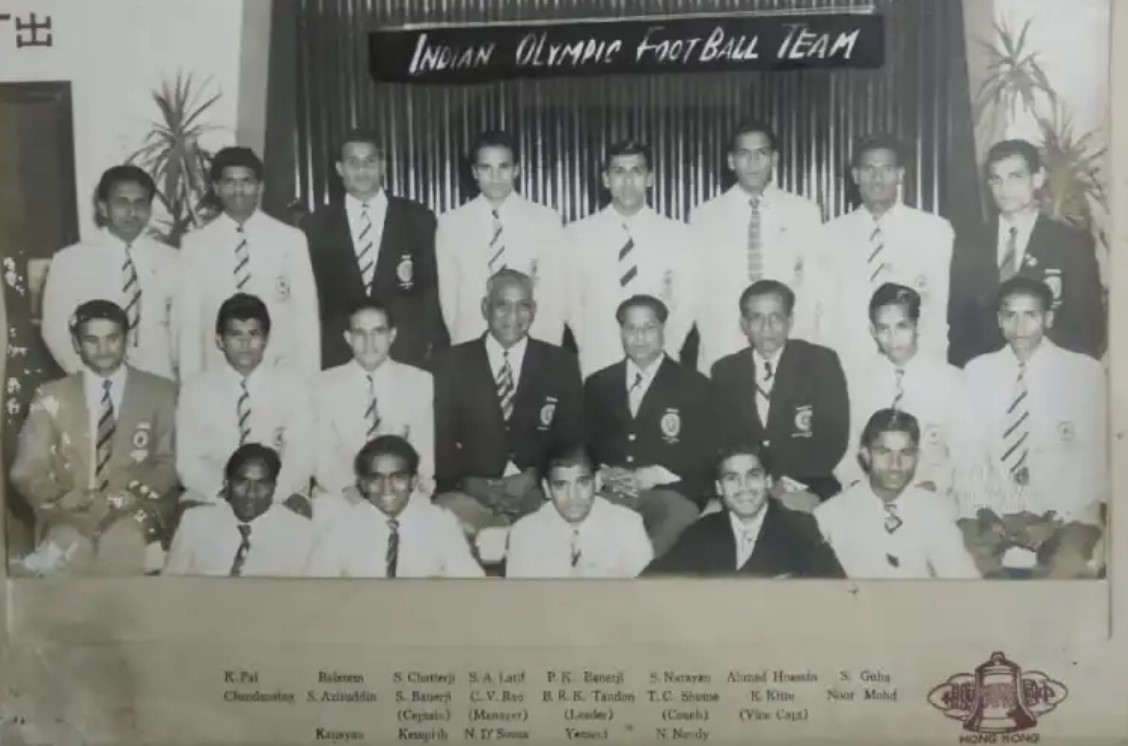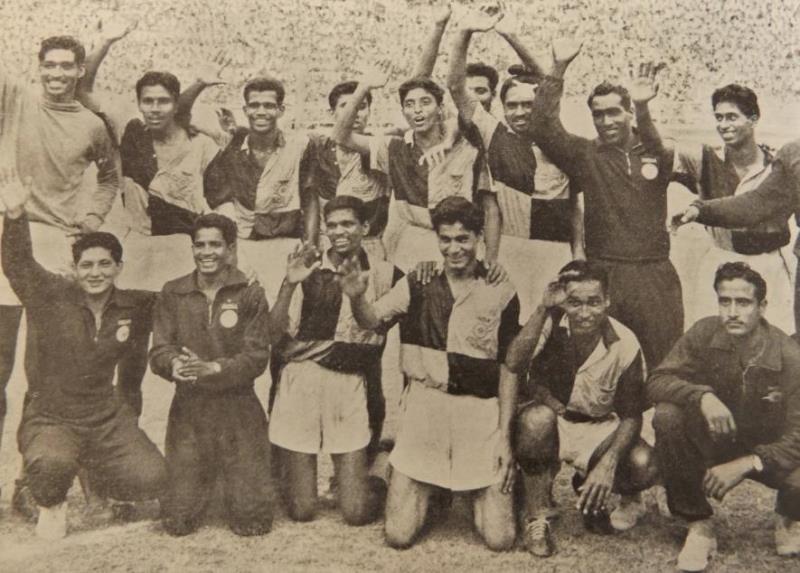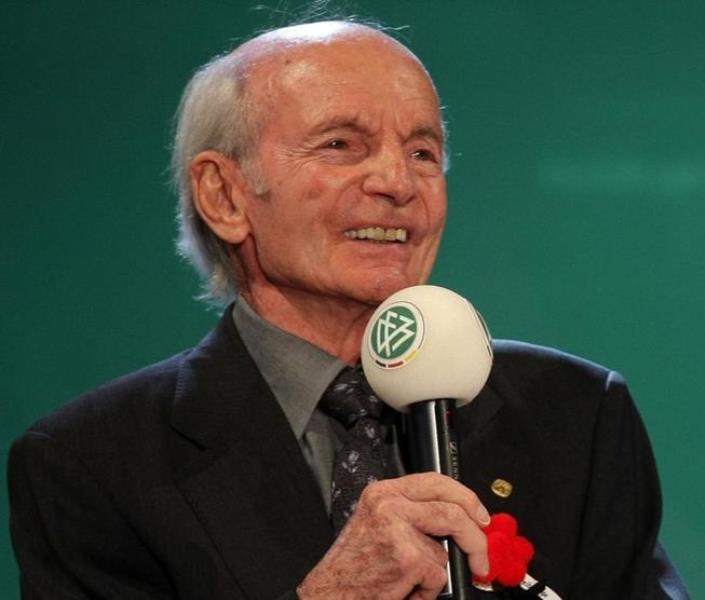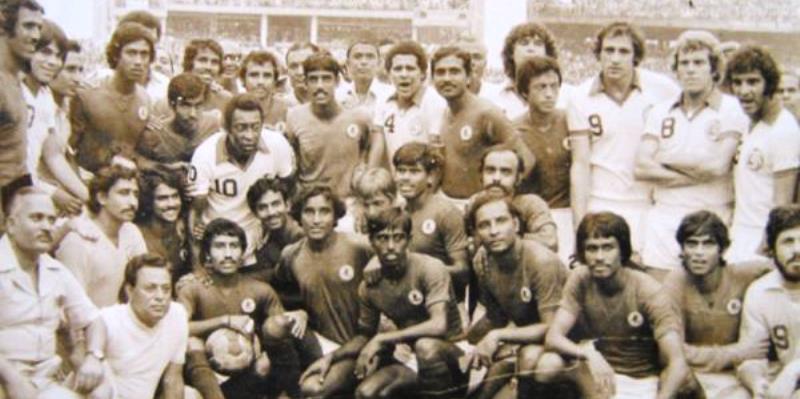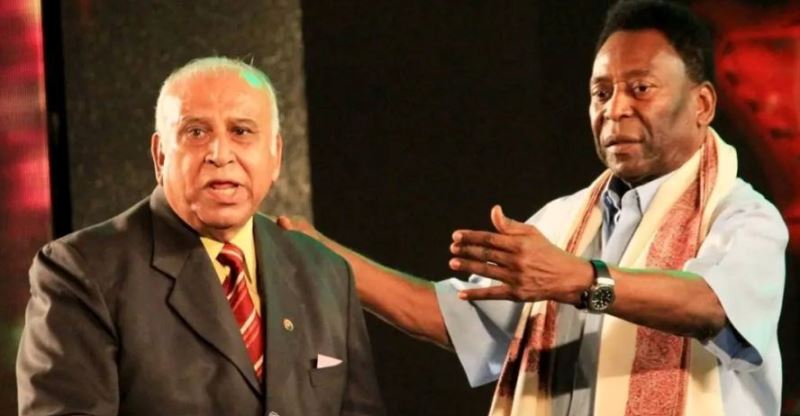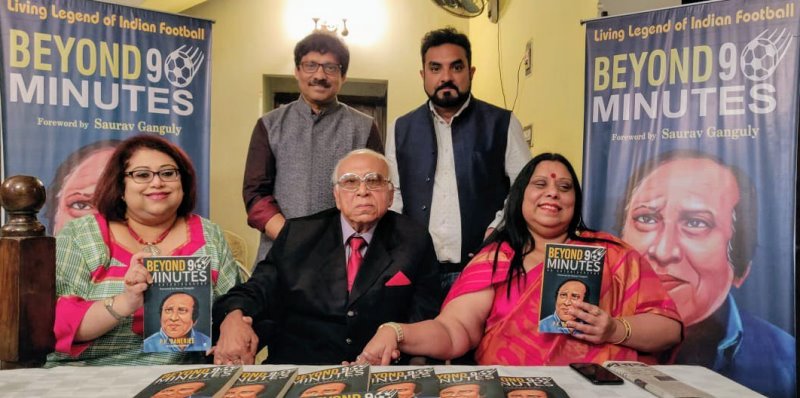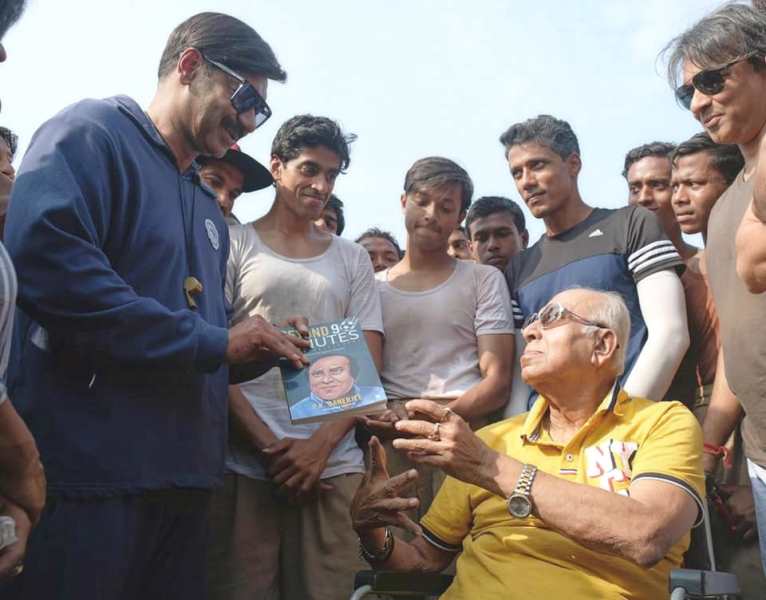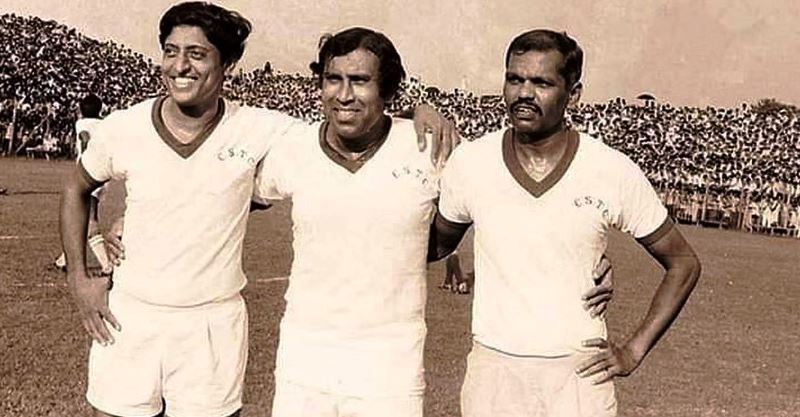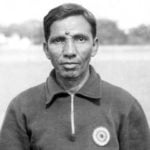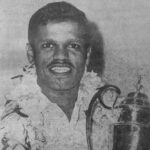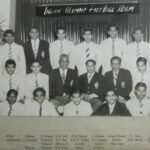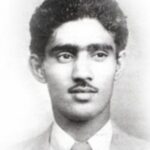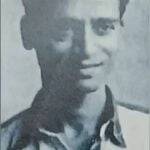P. K. Banerjee Age, Death, Wife, Children, Family, Biography
Quick Info→
Death Cause: Multiple Age-related Ailments
Hometown: Kolkata
Age: 83 Years
| Bio/Wiki | |
|---|---|
| Birth name | Pradipto Banerjee |
| Full name | Pradip Kumar Banerjee |
| Other name | • PK-da • PK |
| Profession | Footballer |
| Physical Stats & More | |
| Height (approx.) | 5' 8 1⁄2" (174 cm) |
| Football | |
| Professional Debut | • Domestic - 1953 Jamshedpur Football Association (against Hindustan Aircrafts) • International - 18 December 1955 (against Ceylon, now Sri Lanka) in Quadrangular tournament in Dacca, Pakistan (now Dhaka, Bangladesh) |
| Jersey Number | # 7 (India) |
| Domestic/State Team | • Jamshedpur FA • Aryan Club • Eastern Railway • Bihar • Bengal |
| Coaches/Mentors | • Syed Abdul Rahim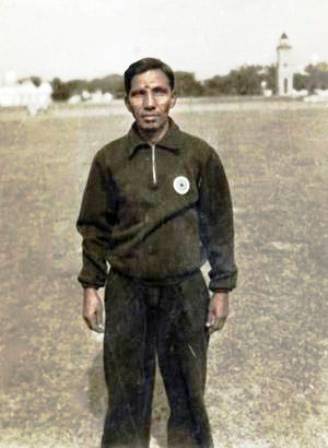 • Sushil Bhattacharya 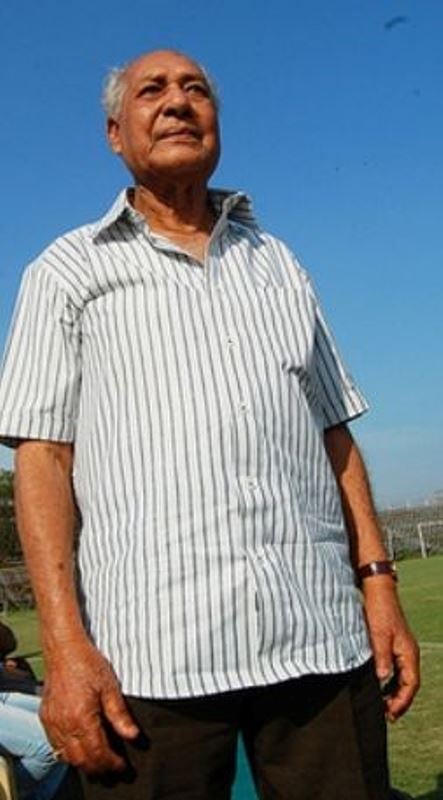 • Sailen Manna 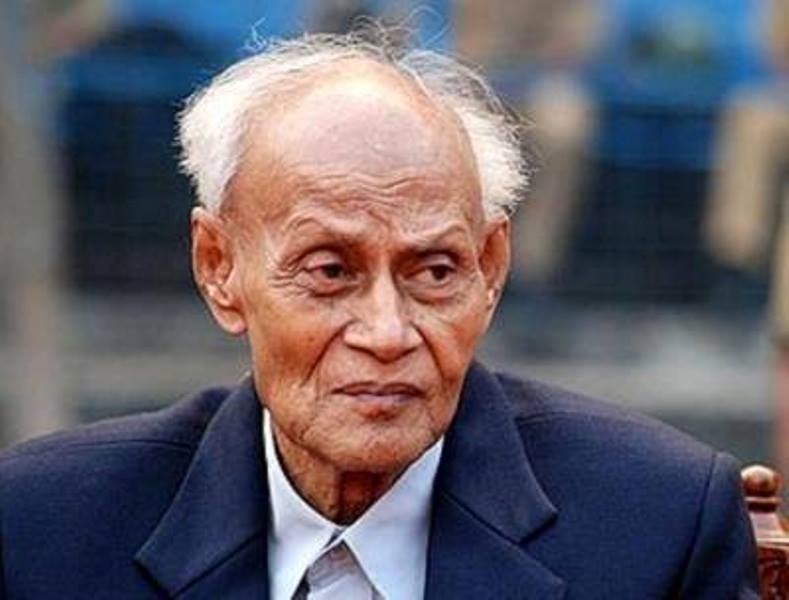 |
| Position | Forward |
| Record | Scored maximum goals (6) in Asian Games |
| Awards, Honours, Achievements | • Arjuna Award (1961) • Padma Shri (1990) • Listed as Indian footballer of 20th century by IFFHS (1990) • FIFA Centennial Order of Merit (2004) • FIFA Player of the Millennium (2005) • Bharat Nirman Awards - Lifetime Achievement (2011) • Banga Bibhushan (2013) • Lifetime Achievement Award by Football Players' Association of India (2013-2014) • East Bengal "Coach of Coaches Award" (2019) • International Fair Play Award (by Olympic Committee) |
| Personal Life | |
| Date of Birth | 23 June 1936 (Tuesday) |
| Birthplace | Moynaguri, Jalpaiguri, Bengal Presidency, British India (now in West Bengal) |
| Date of Death | 20 March 2020 |
| Place of Death | Kolkata, West Bengal, India |
| Age (at the time of death) | 83 Years |
| Death Cause | Multiple age-related ailments (like heart problems, dementia, and Parkinson's disease) |
| Zodiac sign | Cancer |
| Signature | 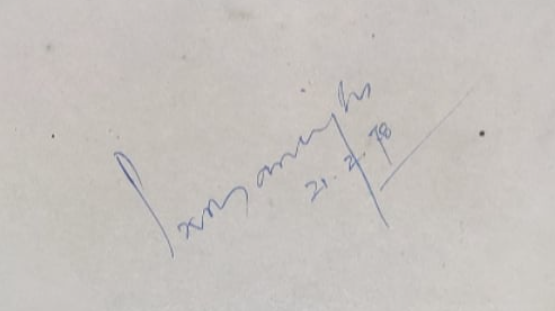 |
| Nationality | • British Indian (1936 - 1947) • Indian (1947 onwards) |
| Hometown | Kolkata |
| School(s) | • Jalpaiguri Zilla School (West Bengal) • K.M.P.M. School (Jamshedpur, Jharkhand) |
| Religion | Hinduism |
| Relationships & More | |
| Marital Status | Married |
| Affair/Girlfriend | Aarti |
| Family | |
| Wife/Spouse | Aarti (deceased in 2003 to liver cancer) |
| Children | Daughters- 2 • Dr. Paula Banerjee (younger; professor of History at Calcutta University) • Dr. Purna Banerjee (professor of English and director of Gender Studies at a private university in Illinois, U.S.A) 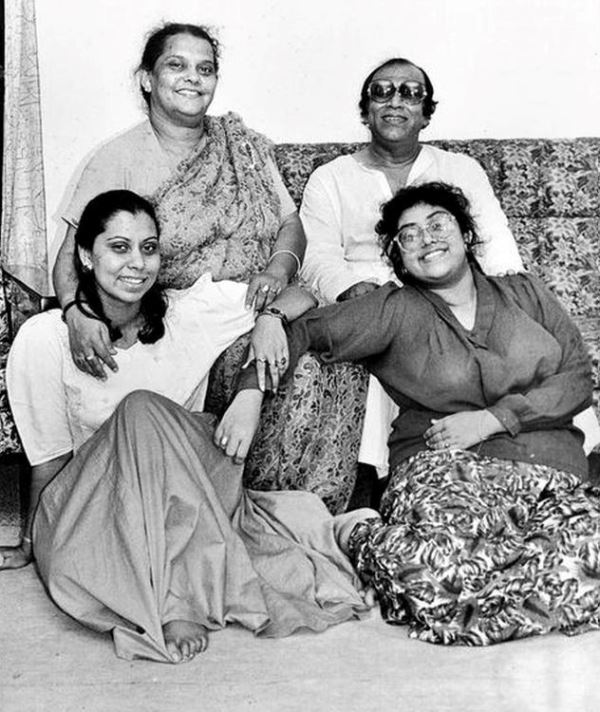 |
| Parents | Father- Prabhat Banerjee (government employee) |
| Siblings | Brother- Prasun Banerjee (former footballer and politician)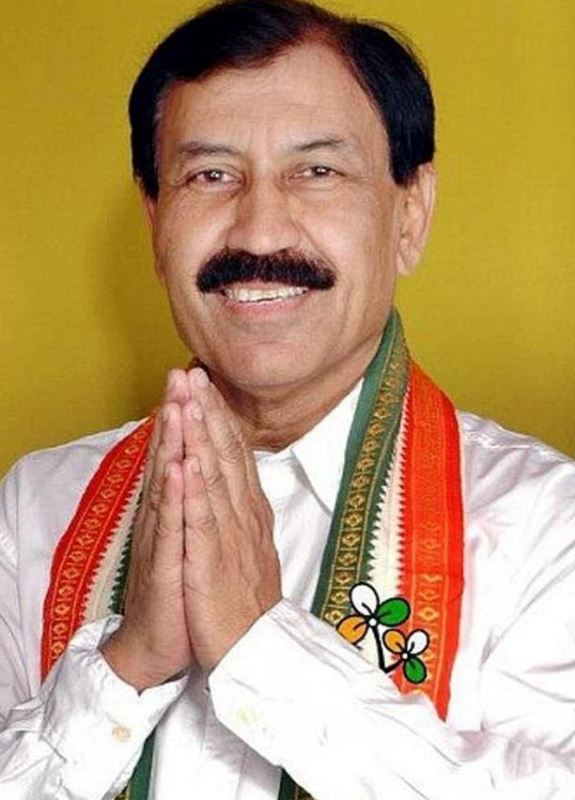 Note: PK had 6 siblings and he was the eldest. |
| Social Media | |
| @PKBanerjee10 | |
Some Lesser Known Facts About P. K. Banerjee
- P. K. Banerjee’s father died when he was a teenage boy. His death was caused by depression, which happened because of poverty after which the responsibility of his household fell on Banerjee’s shoulders.
- In 1951, he got his first job in the Indian Cable Company because of his good football playing skills. There he got a monthly salary of Rs. 135.
- In 1953, Banerjee got a job in the Railways through sports quota. There, he worked as a ticket collector with a salary of Rs. 137.
- P. K. Banerjee spent his school years in Jamshedpur. At the age of 18, he moved to Kolkata and stayed there until his death.
- He started playing professional football when he was just 15 years old. In 1951, he played for the Santosh Trophy from the state team Bihar. Later, he played this trophy on behalf of Bengal and Railways.
- His club career started with the Jamshedpur Football Association in 1953, under which he played against Hindustan Aircrafts Limited for the IFA Shield.
- In 1954, Banerjee joined and played for Aryan Club. He joined Eastern Railways FC in 1955 and played for it until his retirement as a football player. At that time, he also did a job at the Indian Railways.
- In 1955, Indian football coach, Syed Abdul Rahim spotted P. K. Banerjee. Later, he became one of his favourite players.
- He was the first Indian footballer who scored maximum goals (5) in his international debut match, which was against Ceylon (now Sri Lanka) for the Quadrangular tournament in Dhaka in 1955. This tournament got him the Colombo Cup. Banerjee was 19 years old at that time.
- He competed for India in the 1956 Melbourne Olympics, when India reached the semi-finals for the first time in the history of Indian football. In the semi-finals, they lost to Yugoslavia by a score of 1-4.
- In 1957, he was part of the DCM Trophy’s winning team, the Eastern Railway Club.
- In 1958, he won the Calcutta Football League (CFL) under the training of Sushil Bhattacharya and Bagha Some. In the league, he represented the Eastern Railway Club and became the top scorer, scoring 12 goals in the league.
- In the 1958 CFL, Banerjee emerged as a top scorer with a total of 12 goals in the league. This year, he also competed for India in the 1958 Tokyo Asian Games.
- Banerjee also has one Santosh Trophy under his achievement, which his team, Bengal won in the 1958-1959 season.
- In 1959, he played for India in the Merdeka tournament, held in Kuala Lumpur in which the team won a silver medal.
- In the 1960 Rome Olympics, he served as the captain and scored a goal against France, bringing the match to a draw at a score of 1-1.
- After his performance in the 1960 Rome Olympics, Banerjee for some time autographed as – ‘Captain of Indian Football Team, Rome Olympics, 1960.’
- He was the first to be honoured with the Arjuna Award in Football, which began in 1961.
- In the 1962 Jakarta Asian Games tournament, P. K. Banerjee scored 4 goals. India won the gold medal in this tournament.
- In 1964 and 1965, he played again in the Merdeka tournament, where India won silver and bronze medals, respectively.
- He also played for the 1966 Asian Games, held in Bangkok. In the event, India could not make it to the quarter-final round.
- In 1967, his team, the Eastern Railway Club won the Bordoloi Cup.
- He got multiple injuries between 1965 and 1966 due to which he retired in 1967.
- In 1969, Banerjee pursued a coaching course in Japan under German coach Dettmar Cramer. FIFA conducted this coaching course, and Banerjee passed it with a first-class degree.
- Banerjee joined the Bata SC football club, followed by the Eastern Railway Club after completing his training course as a coach.
- He served as the national coach of the Indian football team from 1972 to 1986. He coached great players like Subhash Bhowmick, Mohammad Habib, Shyam Thapa, Sudhir Karmakar, Subrata Bhattacharya, and many others.
- He coached the Indian team for the 1970 Asian Games in which India bagged a bronze medal.
- In 1971, India won the Pesta Sukan Cup in Singapore under his training.
- In 1972, he joined the East Bengal club as a manager. His team won the IFA Shield in 1964 and 1965.
- In the 1975 IFA Shield final, East Bengal defeated its tough competitor, Mohun Bagan by a score of 5-0. This was then the biggest-ever margin in the Kolkata Derbies (match between Mohun Bagan and East Bengal).
- In 1976, he became a manager of Mohun Bagan. Under his guidance, Mohun Bagan finished with a draw score of 2-2 against the New York Cosmos, led by Pelé. It was a historical match to remember.
- In 1976, under P. K. Banerjee’s guidance, Mohun Bagan won the triple-crown triumph for the first time in a single season by winning the IFA Shield, the Rovers Cup, and the Durand Cup. In 1978-79, it was the winning team of the Federation Cup.
- Mohun Bagan, under the coaching of Banerjee, received worldwide popularity after its match with the American Club ‘Cosmos’ which had players like Carlos Alberto Torres, Giorgio Chinaglia, and Pelé. This match was played on 24 September 1977 in Eden Gardens, Kolkata.
- In 1983, he again came back to the East Bengal Club and served as its manager. Under him, it won 16 major trophies in 4 seasons. These included 4 Calcutta League titles, 4 IFA Shield titles, 3 Rovers Cup titles, 2 DCM trophies, 2 Bordoloi Trophies and 1 Durand Cup.
- In the 1985 South Asian Games, Banerjee won the gold medal with the national team.
- Under his guidance, East Bengal won the 1997 Federation Cup in the Kolkata Derby (a match between East Bengal and Mohun Bagan) by defeating Mohun Bagan by a score of 4-1. This match is considered as his finest match as a coach.
- P. K. Banerjee as a national coach was sent on a World Cup tour by the Communist government of West Bengal to meet legendary International players and coaches of football like Michael Platini, Eusebio, and Pelé.
- He served as a technical director at the Tata football academy between 1991-1997.
- In 1999, he became the technical director of the Indian football team.
- He is known for his humbleness. Former India captain Bhaichung Bhutia called him the “Guardian Angel” of Indian football. Bhutia was Banerjee’s disciple and praising him in a column, he remarked,
What I felt truly great about the man was that he was not only a good player and a coach, but also a great human being…Off the pitch, he would always give us guidance on how to conduct ourselves. He taught us how to stay humble even when you get all the media attention that comes with playing at the top level at the Kolkata Maidan.”
- He has written a memoir, titled ‘Beyond 90 Minutes’ in collaboration with Anirban Chatterjee. It was published in 2019.
- Maidan, a Bollywood film released on 10 April 2024, is based on the life of an Indian football coach named Syed Abdul Rahim (portrayed by Ajay Devgn). The film highlights the achievements of the Indian national football team under his mentorship during the 1950s and early 1960s, an era often termed ‘the golden era of Indian football.’ Many Indian footballers, including P. K. Banerjee (portrayed by Chaitanya Sharma), were part of these achievements.
- Banerjee served as a football coach for East Bengal and Mohun Bagan. Reportedly, he managed the players’ egos well to avoid ego clashes during the game. This way he brought the best out of his team.
- He also served as the football commentator.
- P. K. Banerjee’s name is often paired with the Indian football legends Chuni Goswami and Tulsidas Balaram. These three were the fearless trio of the Indian football team and were popularly known as the ‘holy trinity’ of Indian football of the ’50s and ’60s.
- Chuni Goswami was Banerjee’s best friend. He once remarked,
It was his match reading ability that made Banerjee one of India’s greatest football coaches from the 70s to 90s.”
- In his career span of almost six decades, he represented India in 36 matches and scored 19 goals for his country. In 6 of these matches, he served as the captain of the Indian football team.
- He is known for scoring against powerful teams like Japan, South Korea, Australia, and France.
- Banerjee scored more than 190 goals before the completion of his football career.
- The IFA Shield tournament’s award of best coach is named after him as the ‘P. K. Banerjee Memorial Award for the Best Coach.’
- P. K. Banerjee’s knowledge was extended beyond football because of which he was known as ‘the Walking Encyclopedia.’
- He is the only player known for receiving the International Fair Play Award from the Olympic Committee.
- Banerjee had a history of many ailments like dementia, heart problems, and Parkinson’s disease. He was hospitalised for 18 days before his death, which was caused by sepsis and multi-organ failure, resulting from pneumonia.
- On 12 May 2023, the All India Football Federation announced his birthday to be celebrated as ‘AIFF Grassroots Day.’ This day was kept with a vision titled ‘Vision 2047.’ This vision is a detailed roadmap to engage the maximum participation of Indians in football with a target of 100 million by 2047.

